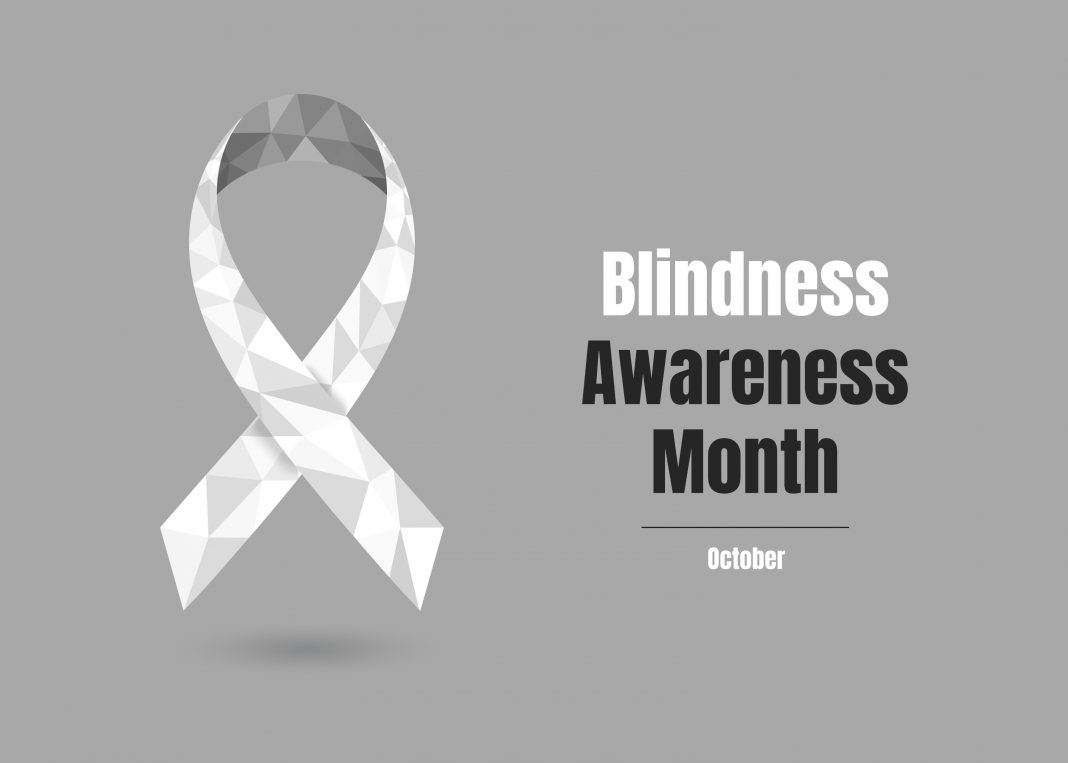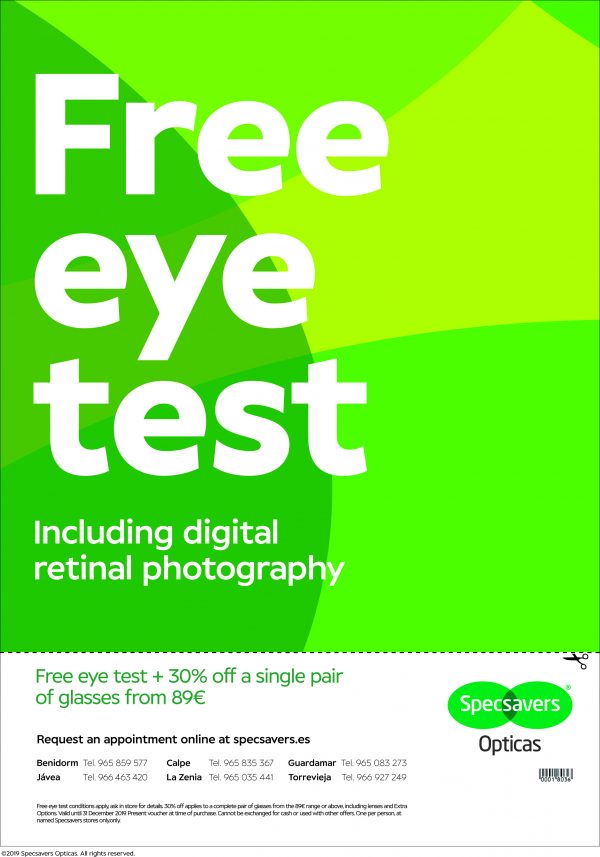HEALTH and wellbeing is high on the agenda for many of us, but while diet and exercise may take top priority, do you ever stop to take notice of your eyes? Evidence suggests our eye health isn’t something we pay close enough attention to as a quarter say they don’t have a check every two years[1].
That is why as part of Blindness Awareness Month this October, Specsavers Ópticas is urging the nation to take action today so they can protect their vision for tomorrow. Having your eyes tested does not just check for changes in vision but can help prevent sight loss through early detection of conditions and even spot other health concerns such as brain tumours or problems with your circulation.
Dr Nigel Best, Specsavers clinical spokesperson, says: ‘Vision is our most precious sense and the one people fear losing the most. It deserves care and regular attention. There have been significant advancement in opticians’ ability to diagnose disease and everyone should take advantage of the latest innovations at high street opticians.’
He adds: ‘Regular eye tests combined with some simple wellbeing habits can help reduce the risk of developing certain conditions and make it more likely that any problems are detected early.’ Here Dr Best shares some everyday habits we can adopt to help futureproof our eye health.
- Stay active to reduce the risk of developing age-related macular degeneration and cataracts
- Don’t hold back the tears – a good cry can lubricate our eyes, wash away foreign matter and help reduce the risk of eye infections
- Eat plenty of fish which is high in omega 3 fatty acids to help with eye lubrication
- Get enough sleep to avoid twitching eye muscles
- Enjoy Avocados as they are rich in zinc and vitamin B which help stave off cataracts, and have a high amount of lutein which research suggests can help to prevent age-related macular degeneration
- Drink plenty of water to avoid symptoms of dry eye
- Don’t leave your eye makeup on when you go to sleep as it will increase your chances of getting bacterial and oil build up around your eyes or even inflammation
- Wash your hands before handling your contact lenses and ensure you care for your contact lenses properly to reducing the risk of getting bacteria in the eye
Your eyes can reveal a lot about your health so it’s really important to have regular eye tests – once every two years, or more often if recommended by your optometrist. To find out more or book your next appointment head to your nearest Specsavers Ópticas store or visit www.specsavers.es






